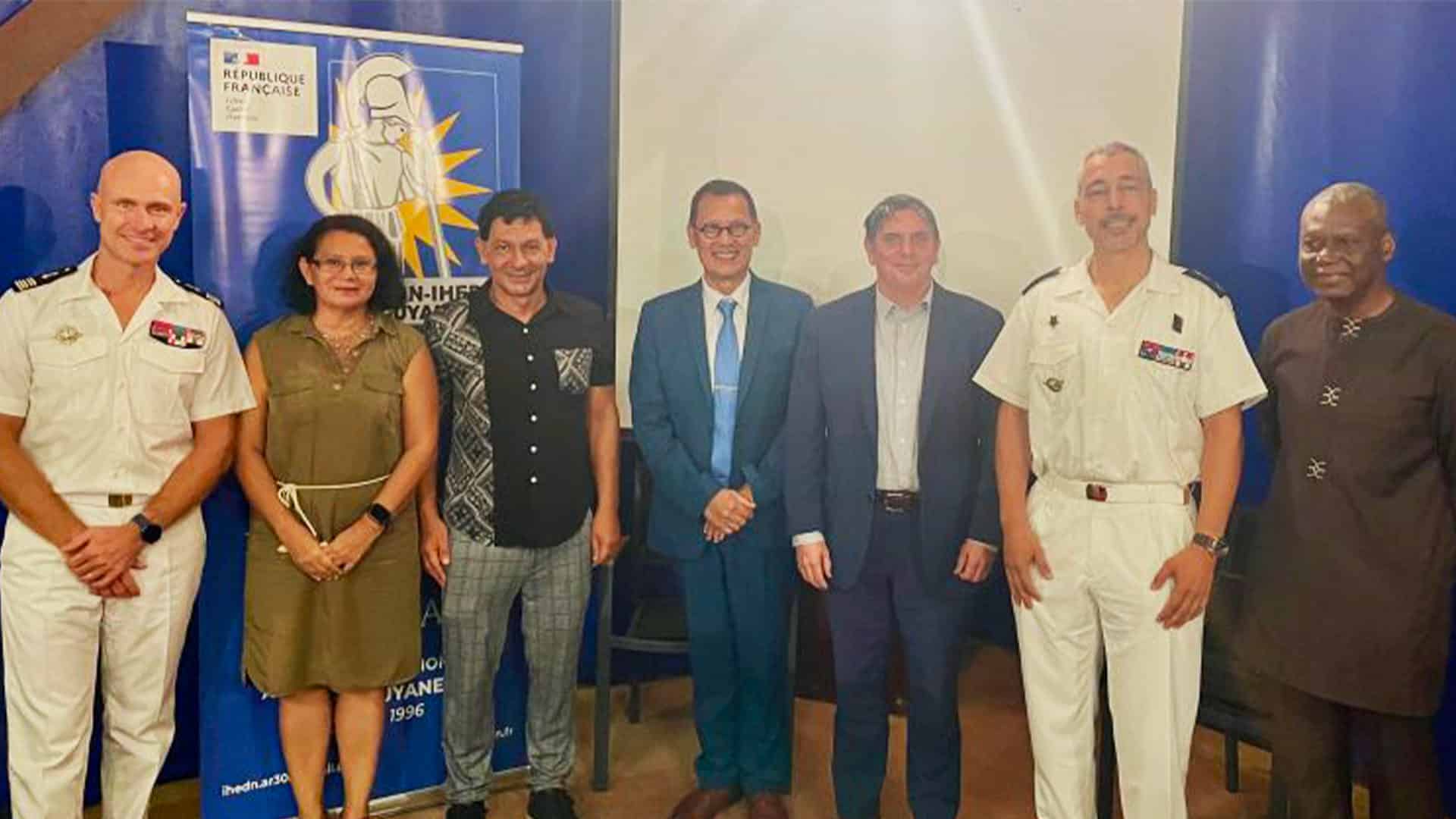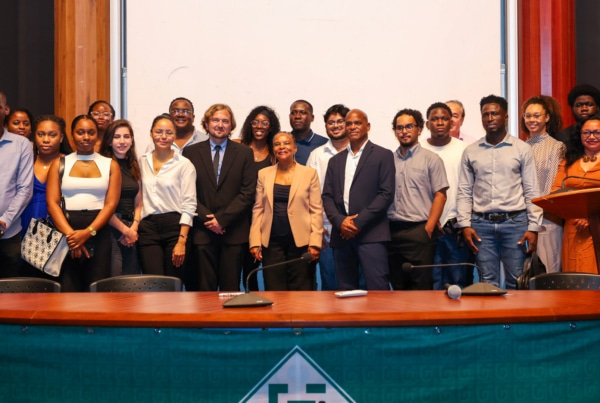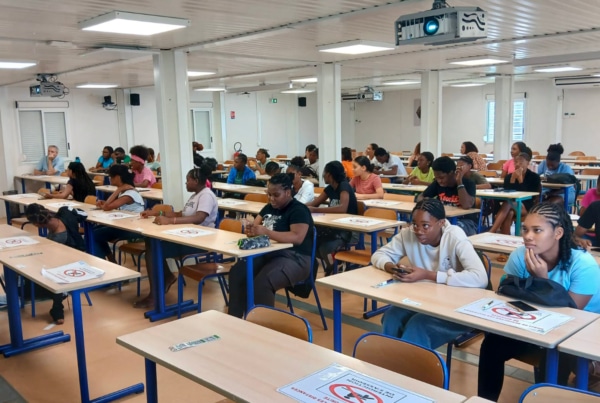
To celebrate the 30th anniversary of the Guiana naval base, the University of Guiana took part in a fascinating conference on the role of Guiana's forests in the history of shipbuilding.
Organised at the initiative of Captain Nicolas AMBROSI, the base commander, the conference was held on 29 November on the theme of "Navigating through History: Wood and the Navy in French Guiana". It was part of the Trinôme académique programme, which brings together the education authority, the military authorities and the regional association of auditors of the Institut des Hautes Études de Défense Nationale (IHEDN), represented by its president Christian MOUTON. The aim? To explore the attempts made in the XVIIIᵉ and XIXᵉ centuries to make use of Guiana's forests in the construction of naval ships.
Highlighting the wealth of Guyana's forests for the benefit of the navy
The aim of this interdisciplinary conference was to bring together specialists from a number of disciplines to look at the attempts made in the 18th and 19th centuries to use wood from the Guiana forest to build naval vessels, which were already relying heavily on France's European oak forests. Nicola TODOROV began by tracing the main stages in the exploration of the forests for this purpose and explained how the navy's engineers carried out tests to measure the hardness, elasticity and density (density) of the wood from the different species. Enthusiastic, the engineers placed Angelica wood at the top of their rankings. In 1846, the navy abandoned plans to use wood from Guyana. With the geopolitical situation less pressing, the French arsenals were content to exploit the forests of mainland France. And when the geopolitical situation changed, during the naval arms race preceding the First World War, timber had lost its status as a strategic resource for navies. Warships were now built in steel.
Measuring mechanical qualities and durability today
Théophile MEHINTO, a doctor in mechanical physics and teacher-researcher at the Wood Science Laboratory in Kourou, then explained that the names used by marine engineers, such as Wapa, corresponded to three different species of the Eperua genus: Eperua Falcata, Eperua rubiginosa and Eperua grandiflora. He also taught listeners why one of the vernacular names for Eperua falcata is the Oily Wapa.
With an acute sense of pedagogy and the habit of scientific mediation, he then detailed how researchers today measure the hardness, flexibility, elasticity and durability of different types of wood, thus showing the limits of the tests carried out in the 19th century. He also showed that the elasticity of wood species was not unique, but depended on the direction of the fibres. He also emphasised the differences in mechanical qualities and durability within the same species, which may explain some of the disappointments experienced by engineers in the past.
The wide variety of uses for wood in French Guiana
Mabiane BATISTA FRANÇAA, a doctor of geography and forestry engineer, presented examples of trees and how their wood is used today, showing the wide variety of uses for wood in French Guiana.
A lively conference
Throughout the conference, the audience was able to handle the small samples of wood that the lecturers passed around among the audience, and at the end, they were able to admire pieces from the wood science laboratory's xylotheque collection on loan from its director Romain LEHNENBACH. This gave the audience a very concrete idea of the weight of the different pieces, and the colours that sometimes explain the vernacular name of the species. They were also able to see why Goupi (Goupia glabra) is also known as "poo wood" or "oily" Wapa.
Enthusiastic listeners
In his closing remarks, the Commander-in-Chief of the armed forces in French Guiana, General Marc LE BOUIL, stressed the need to maintain the spirit of defence in a world where conflicts are multiplying. Nicolas AMBROSI, commander of the naval base, thanked the audience for the depth of their remarks and the expertise and passion of the UG speakers, who won them over with enthusiasm. The discussions continued over a pleasant cocktail reception.




